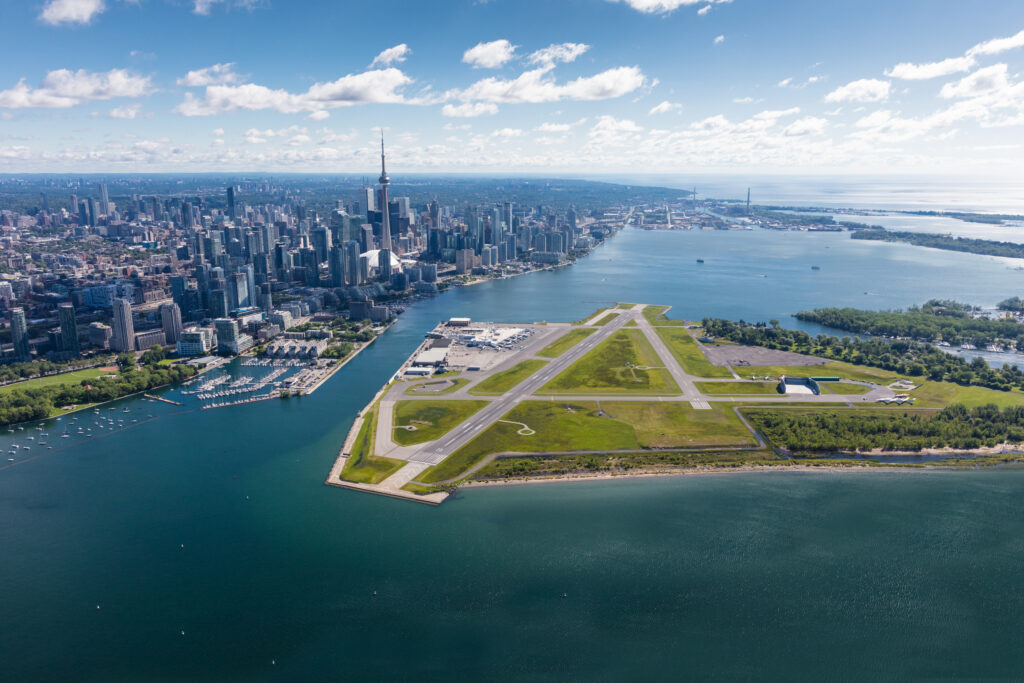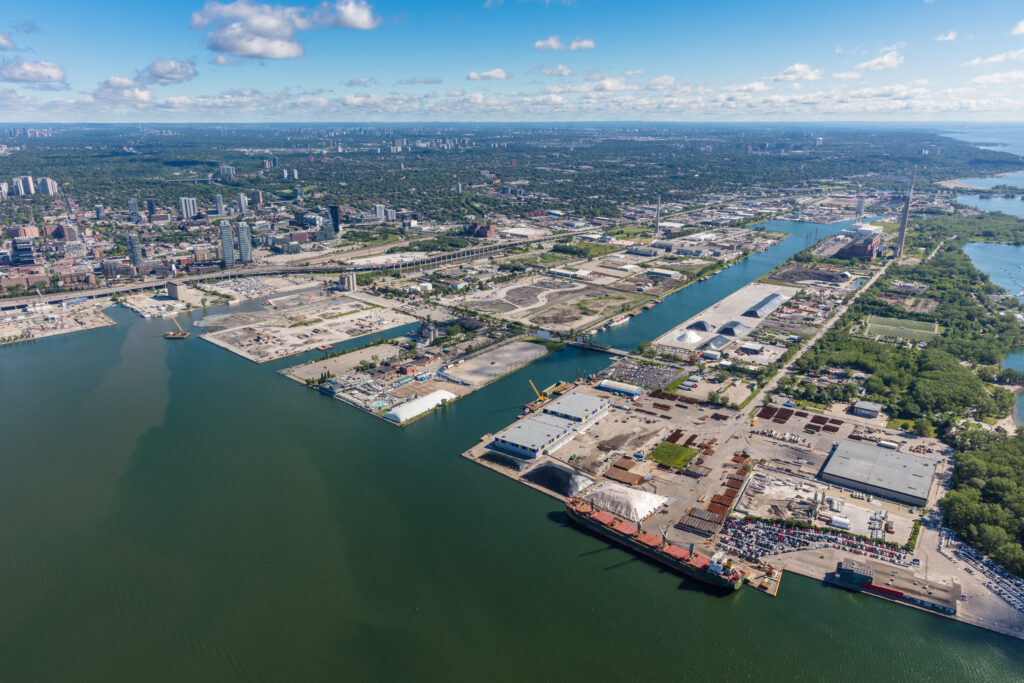
Economic Impact
PortsToronto plays a key role in unlocking the connectivity Toronto needs as a global city, driving the circulation of people and ideas, stimulating innovation and economic growth and anchoring our city among the best in the world.
Our growth is directly correlated to that of the local economy and the communities within which we operate. Effective management of our financial capital is, therefore, a pillar of our value creation strategy, allowing us to reinvest in our communities and the infrastructure and services that allow them to thrive.
Billy Bishop Toronto City Airport

As a gateway that enables tourism and trade, attracts talent, generates jobs and facilitates healthcare, Billy Bishop Toronto City Airport is an economic engine for the City of Toronto and the Province of Ontario. Located just three kilometres from Canada’s centre for business, finance, tech and healthcare innovation, Billy Bishop Toronto City Airport connects the city and province to North American markets, a competitive advantage that few cities enjoy.
Billy Bishop Toronto City Airport’s annual economic output.
Jobs supported, >2,000 of which were directly associated with airport operations.
Updated research from York Aviation projects future benefits resulting from the introduction of U.S. Preclearance at Billy Bishop Toronto City Airport to include a net impact of $5.3 billion in annual GDP (up from $4.8 billion in earlier research).
Port of Toronto
The Port of Toronto is a key piece of infrastructure within the transportation ecosystem servicing the Greater Toronto Area, driving economic activity in many sectors, including trade, tourism and construction. Providing green marine connectivity directly into the heart of Canada’s largest city for businesses, the Port of Toronto is also a gateway for cruise travel and hub for film and television production that blends seamlessly into Toronto’s iconic waterfront.

Passengers welcomed to Toronto on 47 cruise ships in 2025.
Economic activity generated by marine cargo at the Port in 2022.
Taxes generated by cargo and vessel activity at the Port in 2022.
Jobs directly generated by marine cargo and vessel activity at the Port of Toronto.